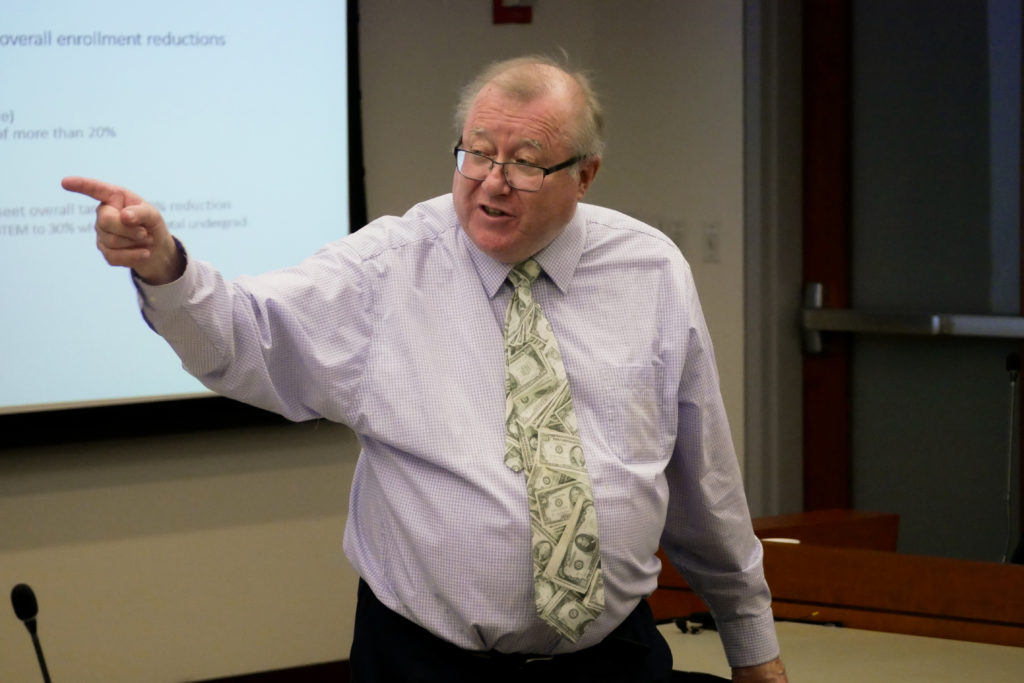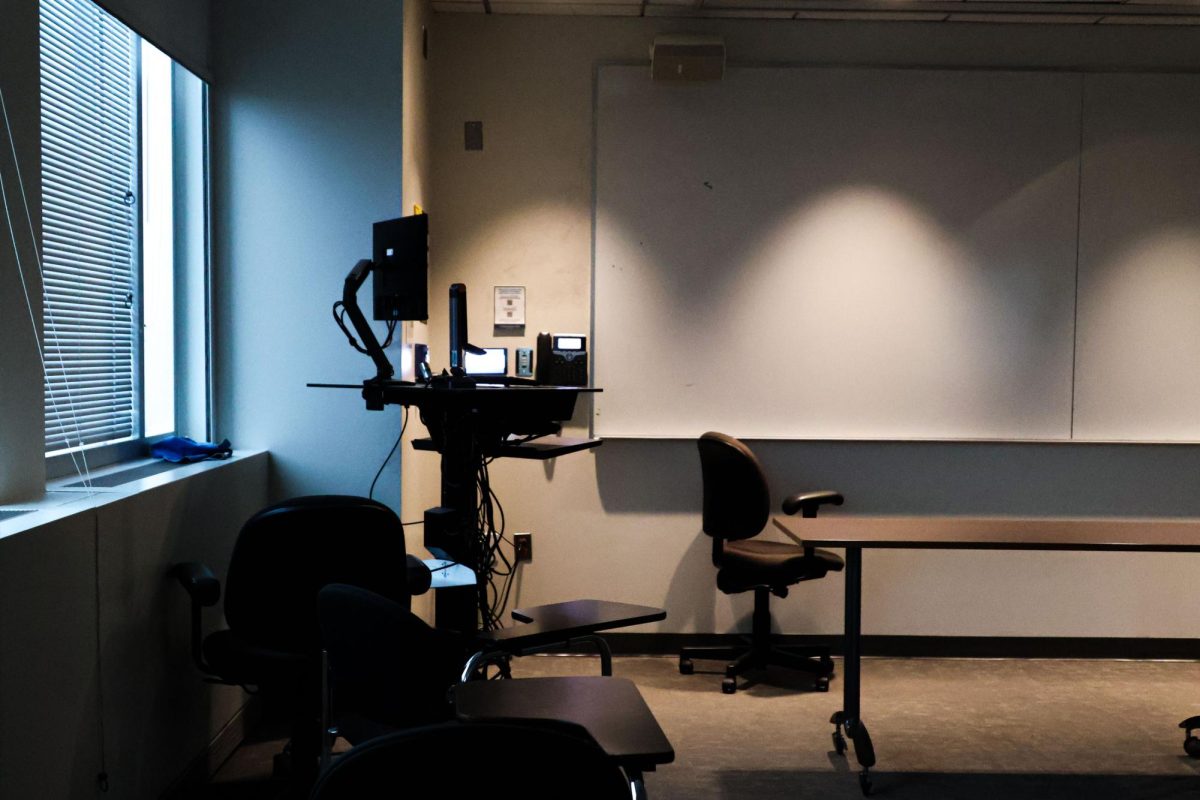Faculty said they are hopeful that support from administrators will allow them to ensure students succeed after courses move online.
Officials announced Tuesday that the majority of courses on campus will be held online for at least two weeks after spring break as cases of COVID-19 rise in the District. Faculty said they expect some technical challenges to arise from conducting lessons online as all professors transition simultaneously, but they added that they are working independently and with other faculty to ensure they are up to speed on online teaching methods.
Joseph Cordes, a professor of economics and public policy and public administration, said he plans to use Blackboard to teach his two graduate economics courses during the “instructional continuity period,” a term officials have used to describe the period of online instruction.
He said he will use Blackboard Collaborate, a feature on the website that allows instructors to share content like presentation slides and for students to ask questions, to hold his lectures.
“It’s functional,” he said. “It’s not ideal, but I don’t know anything is ideal.”
Cordes said he has heard other professors intend to use platforms like Zoom and WebEx, two online conferencing websites.
He added that he held a “dry run” of the online lecture system Tuesday evening for two students who could not attend his seminar, and the students said they could hear his lecture clearly and view course materials. He said he plans to hold office hours through Skype and intends to be “ready to go” when online classes begin later this month.
Cordes said faculty were “well-informed” about the potential for switching to online courses before University President Thomas LeBlanc sent an email informing the GW community about the decision Tuesday. He said Paul Wahlbeck, the interim dean of the Columbian College of Arts and Sciences, put faculty “on alert” and scheduled three training sessions this week and next week to prepare faculty on how to teach courses online.
“The information flow has been pretty good on that basis,” he said. “Certainly, the faculty aren’t caught by surprise – we were just waiting to get the announcement that we were going to do this.”
Mayor Muriel Bowser declared a state of emergency in D.C. Wednesday after officials identified six new cases of COVID-19 in the District. The mayor’s office also pulled permits for two races in D.C. Wednesday after D.C. Department of Health recommended canceling mass gatherings.
Harris Mylonas, an associate professor of political science and international affairs, said he feels prepared to transition his course on nationalism because he created an online version of the course last semester, which he intends to use to ensure students receive instruction without any interruption.
But he added that the transition online may not be seamless for all of the courses he teaches. His course on European integration features “semi-formal” debates that will be difficult to hold through an online forum because he is unsure whether students will feel comfortable participating in online versions of discussions, he said.
“Overall, I think that I will be able to adjust both courses but I am not sure how the students feel about this,” Mylonas said in an email.
Kerric Harvey, an associate professor of media and public affairs, said officials need to evaluate if the digital platforms selected for online instruction have the capacity to accommodate so many faculty switching to online teaching at once.
“We can strive for learning continuity, but we have to take into account the realities of the situation,” Harvey said.
She said she anticipates having to make changes in communicating with students and evaluating class assignments throughout the remainder of the semester to ensure the class is fully accessible.
“There’s going to be a higher degree of uncertainty that anyone is comfortable with to do the best we can with the situation,” Harvey said.
Holly Dugan, an associate professor of English, said faculty who have had previous experience in teaching online courses are collaborating with faculty with less experience to inform them about the best practices regarding teaching strategies and available online resources.
“My main concern is recognizing that this impacts some of my students more than others,” Dugan said in an email. “I’m trying to figure out how to make sure all students are able to succeed in the course.”
Jason Zara, an associate professor of engineering and applied science, said he plans to hold and record online courses during the same time slot each week his courses are scheduled to present directly to students and receive feedback on the efficacy of his lectures.
He said GW and School of Engineering and Applied Science officials have been working together to create a contingency plan “for a little while now.” He said the transition to online learning might be an opportunity for faculty members to review their courses’ learning objectives.
“The hands-on component of my team project-based design course is going to be the interesting challenge,” Zara said in an email. “My plan is to carefully evaluate the learning outcomes for the course and reimagine how these can be achieved in the most effective manner.”
Arthur Wilson, an associate professor of finance, said he currently teaches three classes, two of which are already online and one of which can be transferred “with minor modifications.” He said he plans to review how to use features on Blackboard that allow him to quiz students in his class on intermediate finance with help from officials.
“The business school has been generous in offering workshops this week for faculty and students to get up to speed on the relevant technology,” Wilson said in an email.
Vita Fellig, Dani Grace, Ciara Regan, Julia Russo and Yankun Zhao contributed reporting.








